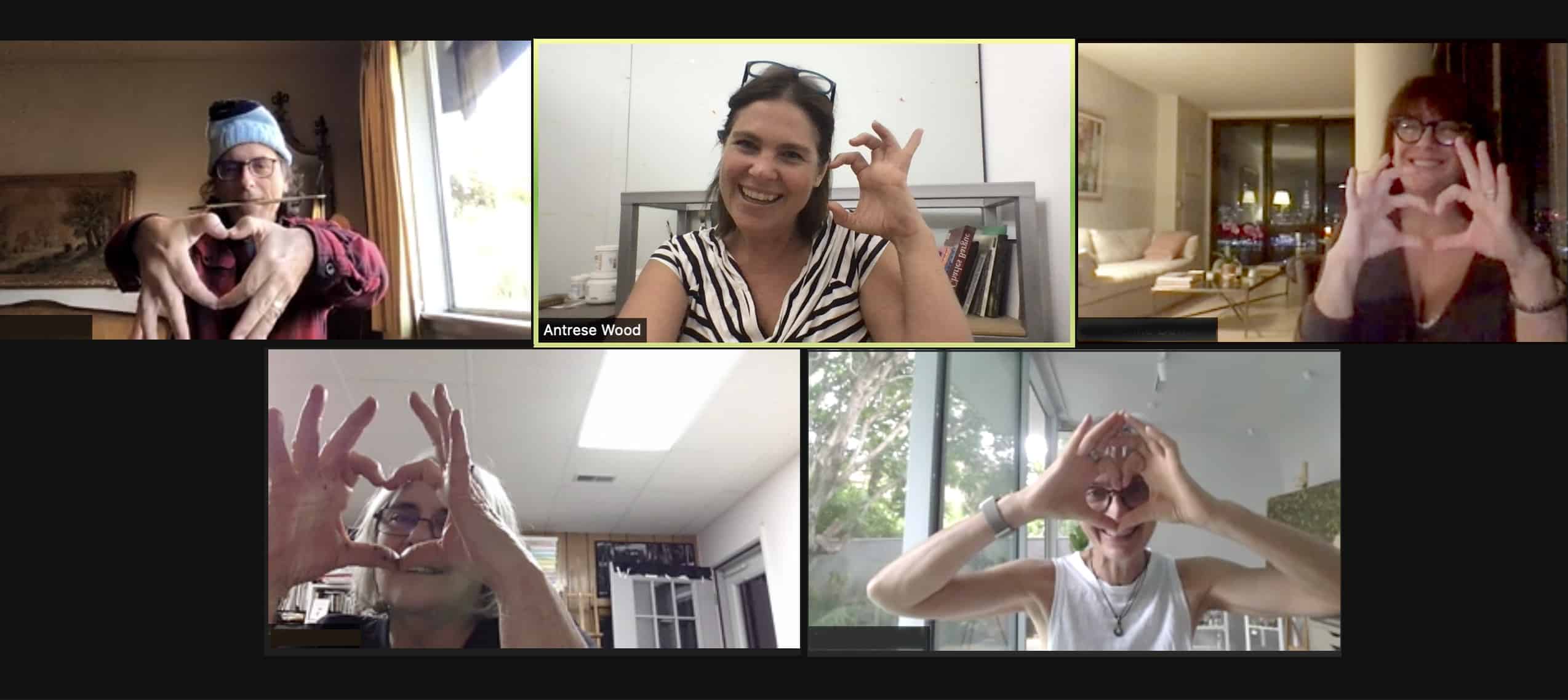Have you ever thought about what it means to YOU to be an artist? Do you have a good grasp of your identity? I invite you to gain clarity on how you define that for yourself so you can have more confidence in your studio. On this episode, we will explore our self-concept and take a deeper look at why the way we see ourselves matters so much to our art practice.
Outline of This Episode
- [1:18] The three concepts of art creation
- [5:43] Why our self-concept is so important
- [10:58] The art of constantly becoming
Style, voice, and identity
There are three concepts in art creation that are helpful to understand. Each of us has our own unique style, voice, and artist identity or self-concept. Style has to do with the specific way you use painting techniques on the canvas. Sometimes it has to do with your subjects, but it can change quickly and isn’t always permanent. Your voice comes from a deeper place. It’s how you see things, your painting philosophy, and the expression of your beliefs about your subject and art. Your voice may evolve, but the core tends to be the same. Finally, your self-concept is how you see yourself. It’s what you believe about yourself deep down as an artist. It determines how you show up and what you do in your art practice, which includes creating your art, showing your art to others, and offering your art for sale.
Go beneath the surface
Take a moment to think about your self-concept as an artist. How do you see yourself? What are the labels you put on yourself? List them all without any judgment and be neutral about it. Just notice what comes up because awareness is half the battle. If we only define ourselves by what’s on the surface, we’ll only get so far. For instance, if your self-concept is attached to the outcome, as long as things go well with a painting, you’re happy! However, as soon as you get to the messy middle where what’s happening on the canvas doesn’t match what’s in your head, you start to feel a little twinge of anxiety, doubt, and frustration. The good news is our self-concept as an artist is something we define for ourselves. It doesn’t come from the outside. We create it in our minds first, then we live into it. We are constantly becoming, and who we are becoming is the ideas we have about ourselves.
Gain clarity
Most artists haven’t truly defined what kind of artist they are or want to evolve into. Their concept of who they are as artists is a mashup of various ideas, myths, and stories from many sources that often don’t agree. We take a little bit from teachers. A little bit from our parents. A little bit from social media. A little bit from our culture and how the culture sees artists. Then we add a dash from our interpretation of an author’s interpretation of an artist who lived 300 years ago. We’re often not even conscious of what our own concept truly is. It’s just the lens we’ve accepted, but it colors everything we do.
We get as far as saying: I’m an artist. Sometimes that statement is so scary we’re like, “Ah! I did it! I said it! I’m an artist!”, and that’s that. But I want to challenge you to go a little deeper and really examine what you think that means. Where you got those ideas and decide if you want to keep them. Who do YOU want to be? How will it fit into YOUR life? How will you combine it with your other roles? Once you are clear on all of that, you will be able to make decisions quicker and easier.
Resources Mentioned on this episode
- The Savvy Painter Growth Studio
- The Savvy Painter Community
- The Stories We Tell About Our Art – EP 277
- The Artist Thermostat: Why It Can’t Be That Easy – EP 273

